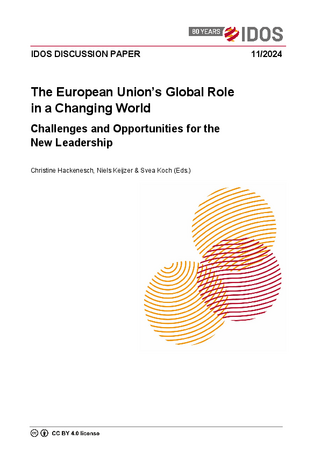
Democracy protection: fundamental reforms needed to adjust to the new context
Hackenesch, Christine / Julia LeiningerMitarbeiter sonstige (2024)
in: Christine Hackenesch / Niels Keijzer / Svea Koch (eds.), The European Union’s global role in a changing world: challenges and opportunities for the new leadership, Bonn: German Institute of Development and Sustainability (IDOS), 32-35
DOI: https://doi.org/10.23661/idp11.2024.7
Open access
Since the European Union (EU) started to introduce democracy support instruments in the early 1990s, the Union’s democracy support has been one of the most controversial aspects in the EU’s external action, both regarding its relevance and its effectiveness. Throughout the decades, policymakers and academics have debated to what extent other interests outdo EU democracy support and whether the EU uses double standards when pressuring for political reforms in some countries but not others. Whether the EU is effective in promoting democracy and contributing positively towards political reforms or whether, and under what conditions, the EU unintentionally even strengthens authoritarian regimes remain key concerns. Moreover, the normative question of whether the EU should engage in democracy support at all has recently moved up the political agenda amid geopolitical shifts and increasing discourse on systemic rivalry and domestic challenges in Europe.


